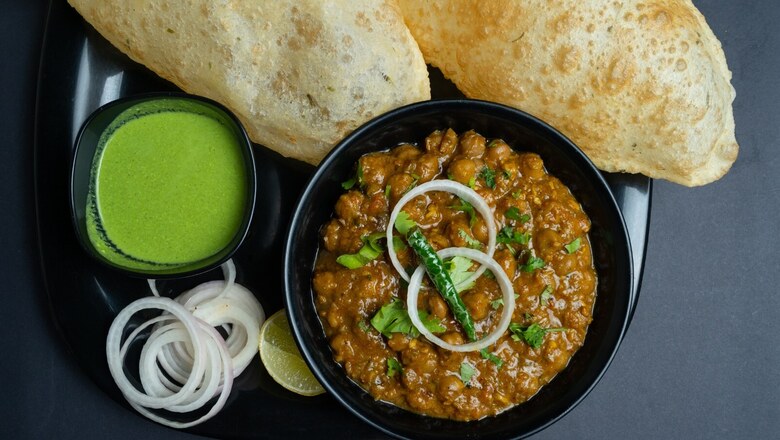
views
Besides the hydrocarbons (crude oil and natural gas), edible oil is perhaps the most critical item for Indian households, where our country is largely dependent on imports. In 2021, we imported $17.5 billion worth of animal and vegetable fats and oils.
Volume wise, the annual domestic consumption of edible oils is around 25 million tonnes, whereas we produce less than 12 million tonnes. Thus, we rely on imports for over half our requirements, making India the third largest vegetable oil importer, behind the US and China, despite a low per-capita consumption of edible oil of less than 6 gm a day.
Despite all efforts to increase the domestic production of edible oils, our imports of edible oil have grown about 175 percent in the past decade. Area under production of oil seeds in India has hardly increased in the past three decades, though the yield has improved. Last year, the central government set a target to bring an additional 6.37 lakh hectare under oilseeds cultivation this season itself and rolled out a long-term plan to make the country self-sufficient in edible oils.
The composition of edible oil imports is 60 percent palm oil, 25 percent soybean oil, and 12 percent sunflower oil. The sources for these oils have been limited in number. We import about 95 percent of our palm oil requirement from Indonesia and Malaysia; and almost all sunflower oil from Russia and Ukraine.
Edible oils are a critical part of the Indian way of cooking; besides being a key raw material for fast growing personal care, detergent and soaps, processed food and chemicals. Palm oil is the most preferred cooking medium for Indians due to its chemical properties and cheaper cost.
It can be stored much longer, remains stable, can be reused for frying, can be blended with other cooking mediums easily, and costs relatively much cheaper as compared to traditional mediums such as mustard oil, ghee, coconut oil and groundnut oil.
Edible oil, therefore, is an important food security issue for India that needs to be tackled on a mission basis.
ALSO READ | Russia-Ukraine Crisis an Opportunity for India to Become Self-reliant in Edible Oil
Recent Developments
For two months, Russia has been engaged in a war with the neighbouring Ukraine. This war has materially impacted trade through the Black Sea. The sunflower oil imports from these two countries have collapsed by over 50 per cent, and dwindled further, in these two months. The war has also resulted in sharply higher hydrocarbon prices in the global markets as Russia is one of the largest exporters of crude oil and natural gas. This has resulted in increased focus on renewable sources and biofuels.
This all occurred when the palm oil and soyabean oil, two largest sources of vegetable fats globally, production was suffering for two years due to (i) poor weather in Latin America, which is the largest producer of soybean; and (ii) poor availability of labor due to COVID, to pick palm fruits in South East Asia. To add to this, poor weather conditions in Canada and Europe also damaged the crops of other sources like Canola.
The prices of edible oil were rising sharply for almost one year. Indonesia, the largest producer of palm oil, had tried to discourage export by increasing duties on export. To tame the high inflation and increased focus on biofuels, Indonesia announced restrictions on export of palm oil.
In February 2022, the Indonesian government imposed an export restriction on crude palm oil (CPO) and its derivatives in the form of export approval to tackle the domestic shortage of cooking oil. One of the requirements to obtain a PE was the fulfillment of Domestic Market Obligation (DMO) and Domestic Price Obligation (DPO). The DMO and DPO requirement obliged exporters of any kind of CPO products to supply CPO or Refined, Bleached and Deodorised (RBD) palm olein domestically. Exporters were required to sell an amount equal to 30 per cent of their planned exports to the domestic market at a predetermined price.
Last weekend, the Indonesian government sought to further tighten the export restrictions.
Obviously, it is a matter of serious concern for the Indian economy. Like hydrocarbons, the inflation in edible oil also has a second and third impact on inflation as it is a key raw material for many consumer goods and intermediate for industrial products.
The Indian government is taking steps to increase self-reliance in edible oils. But these efforts will take a long time to yield desirable results. For the next decade at least we shall remain dependent on imports. So for now, get ready to pay more for your vada pav and a plate of chola bhatura.
For the poor, it’s a hard hit on their kitchen budgets; and for most of the middle classes, it’s an opportunity to cut on their unhealthy fat consumption. No more jalebi for me.
The author is is Director, Equal India Foundation. The views expressed in this article are those of the author and do not represent the stand of this publication.
Read all the Latest Opinions here

















Comments
0 comment